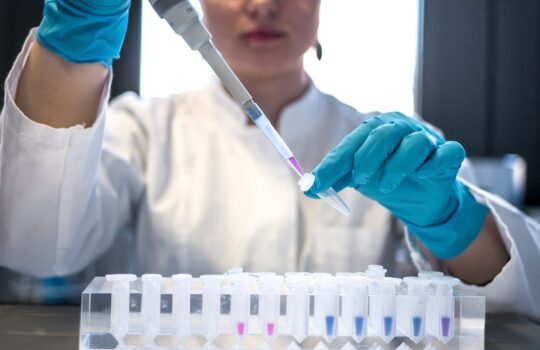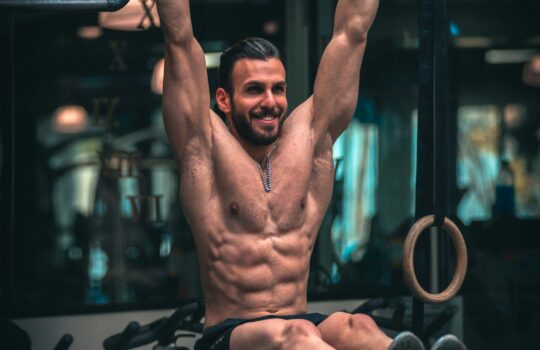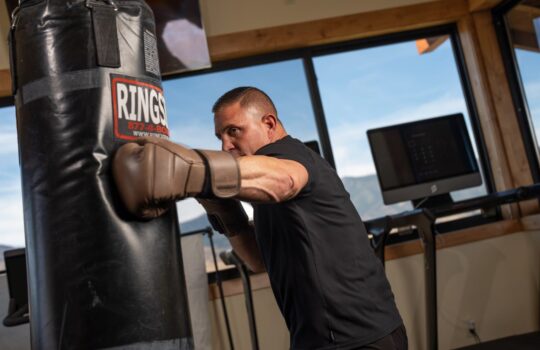Hormones and Performance: Why Your Biology Matters in the Gym

Your hormones are messengers. They influence how your body builds muscle, burns fat, recovers from stress, and endures training. When they are out of balance, even the best workouts and diets may fail to deliver.
Two of the key hormones that drive exercise performance are testosterone and growth hormone (GH) (plus downstream factors like IGF-1).
- Testosterone supports muscle protein synthesis, strength gains, and recovery, especially in men. Some studies show that acute bouts of moderate to high intensity exercise raise testosterone temporarily.
- Growth hormone is released in response to exercise stress and is linked to metabolic adaptation, tissue repair, and fat mobilization.
However, the relationship is complex. Hormonal responses vary by age, fitness level, nutrition, fatigue, and individual biology.
Why Exercise Alone Isn’t Always Enough
Let’s dispel the myth that “if you train hard enough, your hormones will sort themselves out.” That is not always true.
- While resistance and intense training can boost testosterone temporarily, most studies show those increases are short-lived and return to baseline within 30–60 minutes after exercise.
- Long-term training interventions often show negligible or inconsistent effects on baseline resting testosterone in healthy men.
- GH responses to exercise are acute (i.e. spikes during and shortly after), but accumulating those spikes over time may help with metabolic health.
- Exogenous hormone therapies must be carefully dosed and monitored. For example, growth hormone in healthy athletes may increase lean mass but does not reliably improve strength or endurance, and may introduce side effects.
So, while training is essential, by itself it may not fully unlock your performance potential if your hormones are suboptimal.
Debunking the Myth That “Easy Means Unsafe”
Often people assume that if something is “easy,” it can’t be safe or effective. Many fear that fast-acting peptide therapies or hormone interventions are “too good to be true.” But the real risk is not educating oneself and not consulting with a qualified physician.
If people would study the science, book a free consultation with our team, and meet with one of our doctors, we believe they’d see how rational hormone optimization works, and most fears would dissolve quickly.
Hormones and peptides are not magic bullets, they are tools. With the right lab testing, medical supervision, and personalized protocols, they can act as powerful multipliers of your training efforts.
Hormone Optimization + Training = Synergy
When hormone levels and signaling pathways are optimized, your training yields better returns. Here is how:
- Better Recovery and Repair
Hormones like GH and IGF-1 facilitate tissue repair, collagen formation, and adaptation after exercise. This means less downtime and more consistent progress. - Improved Body Composition
Testosterone and peptide therapies (when appropriate) can help you build lean mass or preserve muscle while losing fat. Clinical studies show increases in fat-free mass in various populations under hormone treatment. - Enhanced Metabolic Flexibility
Optimized hormones can help your body use fat more effectively for fuel, stabilize blood sugar, and reduce insulin resistance, allowing you to better handle training stress and caloric swings. - Amplified Training Responses
With hormone balance, shorter or less frequent workouts can generate stronger adaptations, meaning better returns for your effort.
Getting Started the Right Way
- Start with Lab Testing
Know your baseline levels: testosterone, IGF-1, other relevant biomarkers. - Consult a Qualified Physician
A proper medical evaluation helps debunk myths, address safety concerns, and design a protocol tailored to you. - Pair Therapy with Smart Training
Hormone optimization is not a replacement for movement, it amplifies it. - Track Progress and Adjust
Hormonal responses adapt, so protocols should evolve over time based on follow-up labs and how your body responds.
At TKO Vitality we believe the real secret to transformation is integration: combining regenerative therapies with movement, nutrition, recovery support, and accountability.
Summary
Hormones are central to how your body reacts to exercise. If testosterone or growth hormone signaling is impaired, even your best workouts may underdeliver. But when you optimize those systems through evidence-based therapies, guided by medical science, the training you do becomes far more potent.
As Joey says, the myth most worth debunking is that “if it’s easy, it can’t be safe.” Educate yourself. Meet with a doctor. Give it a chance. Now is the time to unlock your biological potential.
👉 Learn more and schedule a free consultation at TKOVitality.co/schedule
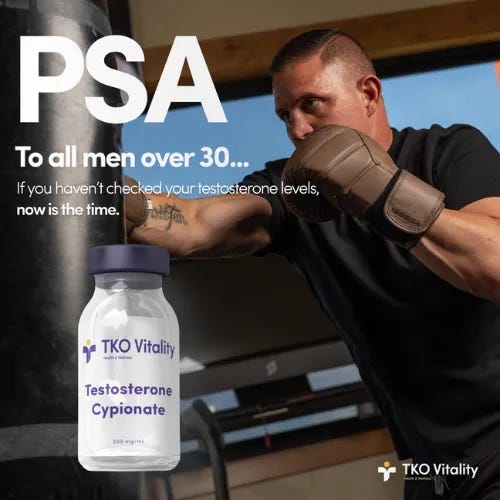
This content is for educational purposes only and does not constitute medical advice. Individual results vary. Peptide and hormone therapies carry risks and are not appropriate for everyone. Always consult a licensed healthcare provider prior to beginning any treatment.
